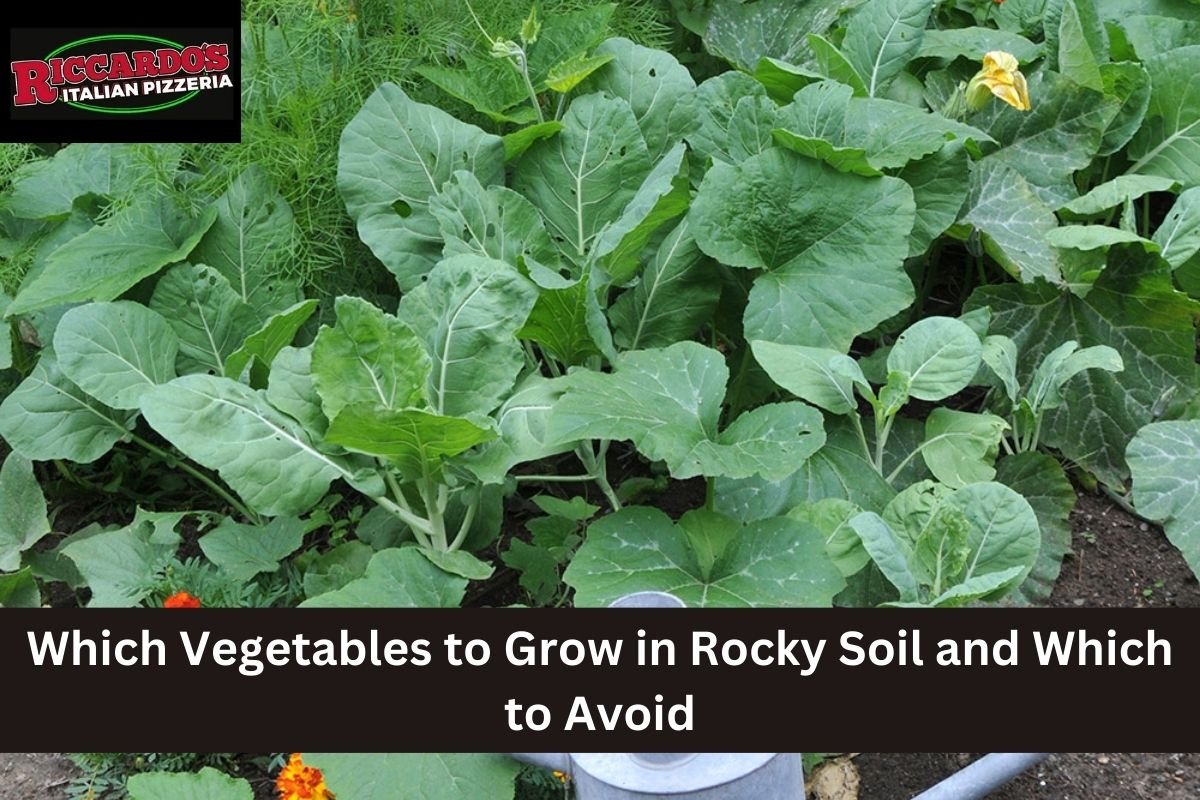Which Vegetables to Grow in Rocky Soil and Which to Avoid :- For a number of reasons, including poor drainage, restricted root space, and the possibility of nutrient deficiencies, growing vegetables in rocky soil can be a difficult endeavor. On the other hand, several plants are better able to tolerate situations like these. A complete advice is provided here that explains which veggies can be grown in rocky soil and which ones should be avoided.
Which Vegetables to Grow in Rocky Soil and Which to Avoid
There are a number of challenges that might arise while cultivating vegetables in volcanic soil. These challenges include poor drainage, restricted root area, and sensitivity to nutrient deficits. On the other hand, there are some veggies that are better able to tolerate such conditions. Below you will find a detailed guide that will explain which vegetables can be grown in stony soil and which ones should not be grown there.
Also Read :- Rose Color Meanings: What You Should Know
Planting Vegetables in Rocky Soil
Vegetables with Short or Shallow Roots: Root vegetables that possess short or shallow roots have an increased propensity to flourish in stony soil. These consist of: Radishes comprise: Rapid in growth, radishes do not necessitate dense soil. Due to their brief development period, they do not require a great deal of nutrients.
If the soil is maintained well-drained and loose, beets can tolerate rocky conditions due to their relatively short roots. Similar to beets, turnips have short roots and, if properly prepared, can thrive in stony soil. Certain varieties of lettuce, specifically those with flexible leaves, thrive in rocky soil. Spinach: When kept hydrated, spinach can adapt to a variety of soil types, including rocky soil.
Swiss Chard: This leafy green is tolerant of less-than-ideal soil conditions and has relatively superficial roots. Some legumes are suitable for rocky soil because they can add nitrogen and enhance soil structure. Peas: Peas thrive in rocky soil and have sparse root systems. Additionally, they supplement the soil with nitrogen, a beneficial element for neighboring plants.
Although resilient and capable of thriving in rocky soil, bush beans would benefit from the addition of organic matter. Brassicas: Specific cabbage relatives exhibit remarkable resilience and are capable of enduring stony soil. Kale is a resilient plant that can flourish in stony soil and other unfavorable soil conditions. Broccoli can flourish in rocky soil with some soil preparation; however, it may require additional nutrients.
Numerous vegetation have evolved to thrive in rocky, well-drained soils. Thyme: Thyme requires little maintenance and flourishes in rocky soil. Sage is capable of thriving in stony soil due to its excellent drainage characteristics. Oregano: Although it prefers rocky, well-drained soils, it can tolerate deficient soil conditions.
Avoid Consuming Vegetables in Rocky Soil
Deep-Rooted Vegetables: Due to the restricted space for root penetration, vegetables that develop deep root systems are apt to struggle in rocky soil. Carrots necessitate loose, deep soil in order to mature correctly. When exposed to rocky soil, they frequently develop an asymmetrical or truncated form.
Similar to carrots, parsnips require dense soil to support the healthy development of their long, straight roots. In order for potatoes to develop tubers, a considerable depth of soil is required. They may experience stunted growth and low yields in rocky soil. Fruit-bearing plants that necessitate substantial root systems for fruit production frequently encounter unfavorable growth conditions in stony soil.
Tomatoes require nutrient-dense, well-drained soil that provides ample space for the growth of roots. Rocky soil has the potential to impede plant growth and diminish crop production. Peppers also necessitate fertile, dense soil in order to flourish and produce fruit. Rocky soil can inhibit the growth and productivity of plants.
Cucumbers require porous, nutrient-rich soil to support their extensive yet shallow root systems. Rocky soil is detrimental to plant development and produce production. Bulb vegetables require porous, well-drained soil in order to germinate their underground bulbs. Onions require loose soil in order to develop and expand correctly. Soil that is rocky can inhibit bulb formation and result in stunted growth.
Enhancing Rocky Soil to Support Vegetable Cultivation
Although specific vegetables may thrive in stony soil, enhancing the soil quality can significantly increase the variety of plants that can be grown. The following are some suggestions: Incorporate organic matter: Fertilized manure or compost can be utilized to enhance the structure and nutrient composition of the soil.
Construct raised gardens containing high-quality soil in order to circumvent the drawbacks associated with rocky terrain. Implement mulching as a means to retain moisture and incorporate decomposing organic matter. Larger boulders should be removed manually to make way for additional space to support root development.
Conclusion:
It is possible to cultivate a vegetable garden that is both fertile and prolific if you choose vegetables that are suitable for the type of soil you have and take steps to amend the soil. It is possible to grow a vegetable garden that is both productive and fruitful by carefully selecting plants that are suitable for the soil and by applying amendment techniques to soil that is stony.
